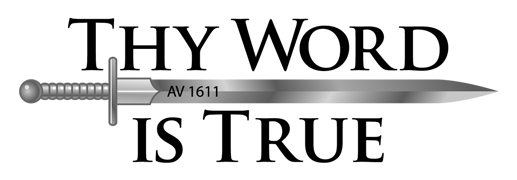Molten Sea
2 Chronicles 4:5 - And the thickness of it was an handbreadth, and the brim of it like the work of the brim of a cup, with flowers of lilies; and it received and held three thousand baths.
1 Kings 7:26 states the molten sea contains two thousand baths. 2 Chronicles 4:5 states the molten sea contains three thousand baths. Is this a possible misprint?
Solution
|
Agree (6) Disagree (0) |
|
100% |
There is no misprint here. Look at the difference in the words used to describe how many baths. 1 Kings 7:26 "contains" 2 Chronicles 4:5 "received and held". 1 Kings is stating how many baths are actually in the molten sea (2000) and 3000 baths is the max capacity.
Solution
|
Agree (7) Disagree (0) |
|
100% |
An apparent contradiction that is in fact a contradiction in the NKJV, NIV and NASB.
One of the proofs of the true Holy Bible, which in English is the King James Bible of 1611, is that is contains no proveable errors. The modern bible versions all contain numerous real and not just apparent contradictions. A case in point is the differences between 1 Kings 7:26 and 2 Chronicles 4:5 where both sections speak of the molten sea constructed by king Solomon that stood upon twelve oxen. How much water did this molten sea actually contain?
In 1 Kings 7:26 we read: "And it was an hand breadth thick, and the brim thereof was wrought like the brim of a cup, with flowers of lilies: IT CONTAINED TWO THOUSAND BATHS." However in 2 Chronicles 4:5 we read: "And the thickness of it was an handbreadth, and the brim of it like the brim of a cup, with flowers of lilies; and IT RECEIVED AND HELD THREE THOUSAND BATHS."
This obviously looks, at first glance, like a contradiction. The NKJV, NIV and NASB all read slightly differently and it is this critical difference that in fact creates a very real rather than an apparent contradiction. The NKJV in 2 Chronicles 4:5 reads: "It CONTAINED THREE thousand baths." Yet in 1 Kings 7:26 the NKJV, NIV and NASB all say: "It contained TWO thousand baths." (Some modern versions, like the NASB, say it "could hold 2000 baths" - "it could hold 3000 baths" which results in the same real contradiction.)
Smith's Bible Dictionary also gets it wrong. It says: " It is said to have been 15 feet in diameter and 7 1/2 feet deep, and to have been capable of containing 2000, or according to (2 Chronicles 4:5) 3000 baths (16,000 to 24,000 gallons).
Easton's Bible Dictionary also gets it wrong. It likewise says: " It was placed on the backs of twelve oxen, standing with their faces outward. It was capable of containing two or three thousand baths of water (Compare 2 Chronicles 4:5)
The solution is really quite easy once you look closely at the correct reading found in the King James Bible. Not only does the KJB read the way it does but so also do both Jewish translations of the Jewish Publication Society of America and the Hebrew Pub. Company of 1917 and 1936, Young's translation, Green's interlinear, the Revised Version of 1881, the ASV of 1901, Hebrew Names Version, Webster's translation, and the Third Millenium Bible.
There are two verbs found in the Hebrew text in 2 Chronicles and only one verb in 1 Kings. The NKJV,NIV, NASB, Darby, Geneva Bible, RSV, NEB, NRSV, and ESV are all wrong and create a real contradiction by not translating the second verb found in 2 Chronicles 4:5. One verb is RECEIVED # 2388 and the second verb is HELD # 3557 three thousand baths.
1 Kings 7:26 tells us that the molten sea actually contained 2,000 baths of water, while the 2 Chronicles passage tells us that it could receive and hold 3,000 baths but it only contained 2,000 - thus is was only filled to two-thirds of its capacity. It is like saying "This gas tank holds 25 gallons; it contains 15 gallons of gas now."
Matthew Henry, the Bible commentator, got it right. He notes: ". There was the molten sea, a very large brass pan, in which they put water for the priests to wash in, v. 2, 6. It was put just at the entrance into the court of the priests, like the font at the church door. If it were filled to the brim, it would hold 3000 baths (as here, v. 5), but ordinarily there were only 2000 baths in it, 1 Ki. 7:26."
There is no real contradiction in the KJB, but a very definite contradiction in the NKJV, NIV and NASB because they did not translate that second Hebrew verb. The other bible versions are false witnesses to the truth. This is only one of many such examples that prove them to be something less than the perfect word of God. By their fruits shall ye know them. "A faithful witness will not lie; but a false witness will utter lies." Proverbs 14:5
Will Kinney
